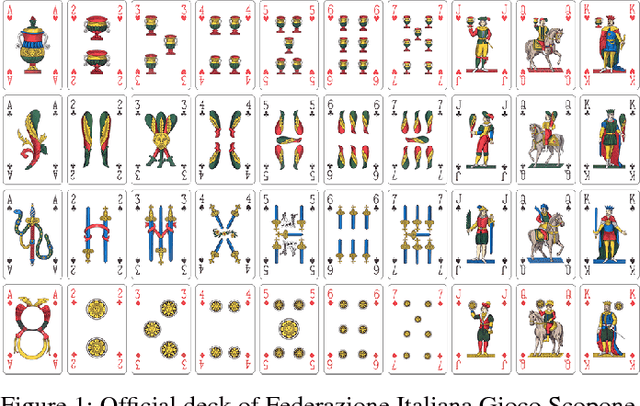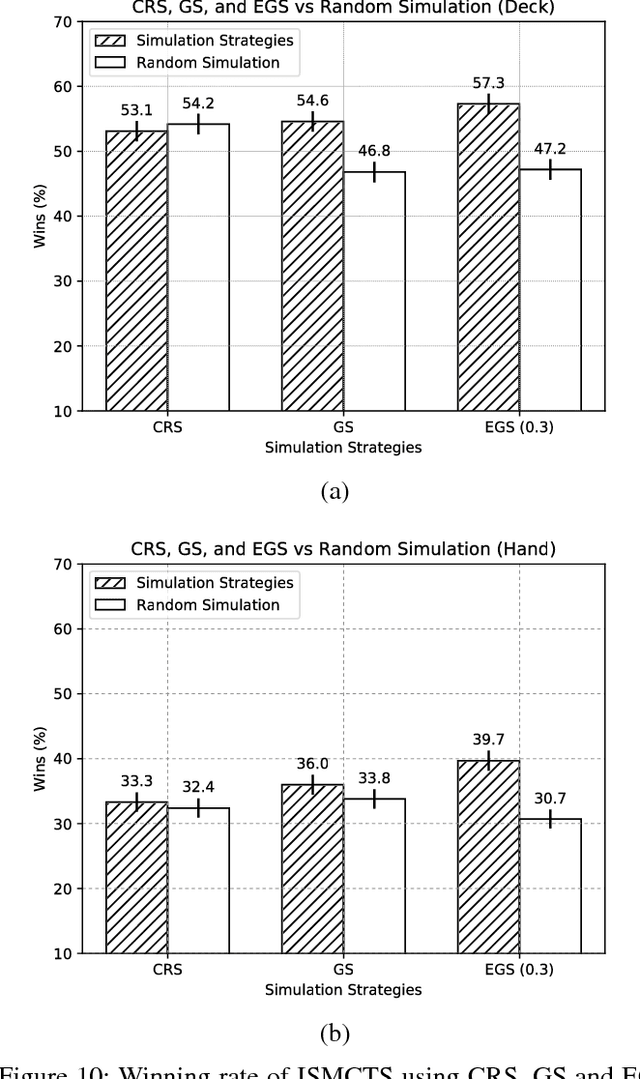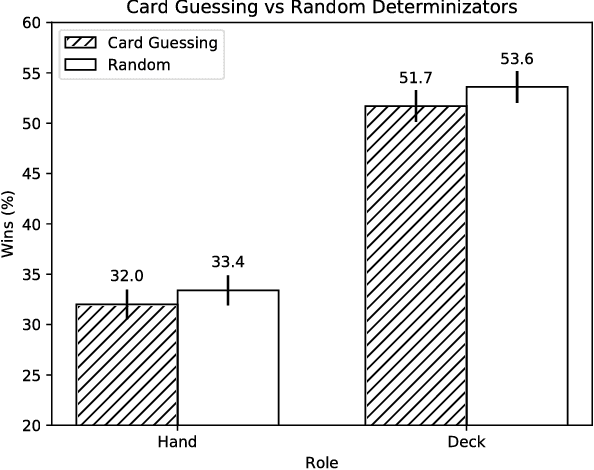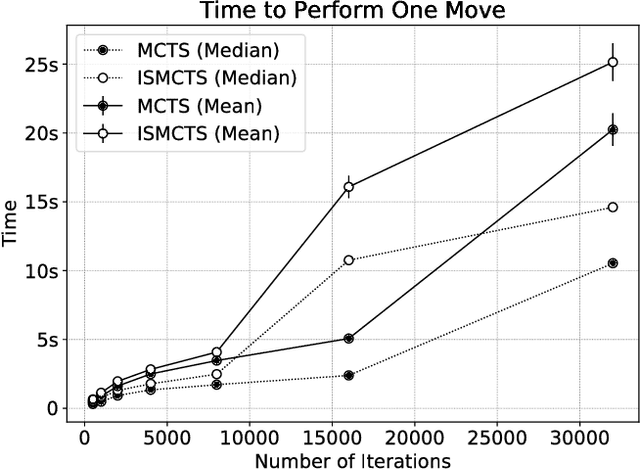Traditional Wisdom and Monte Carlo Tree Search Face-to-Face in the Card Game Scopone
Paper and Code
Jul 18, 2018



We present the design of a competitive artificial intelligence for Scopone, a popular Italian card game. We compare rule-based players using the most established strategies (one for beginners and two for advanced players) against players using Monte Carlo Tree Search (MCTS) and Information Set Monte Carlo Tree Search (ISMCTS) with different reward functions and simulation strategies. MCTS requires complete information about the game state and thus implements a cheating player while ISMCTS can deal with incomplete information and thus implements a fair player. Our results show that, as expected, the cheating MCTS outperforms all the other strategies; ISMCTS is stronger than all the rule-based players implementing well-known and most advanced strategies and it also turns out to be a challenging opponent for human players.
 Add to Chrome
Add to Chrome Add to Firefox
Add to Firefox Add to Edge
Add to Edge